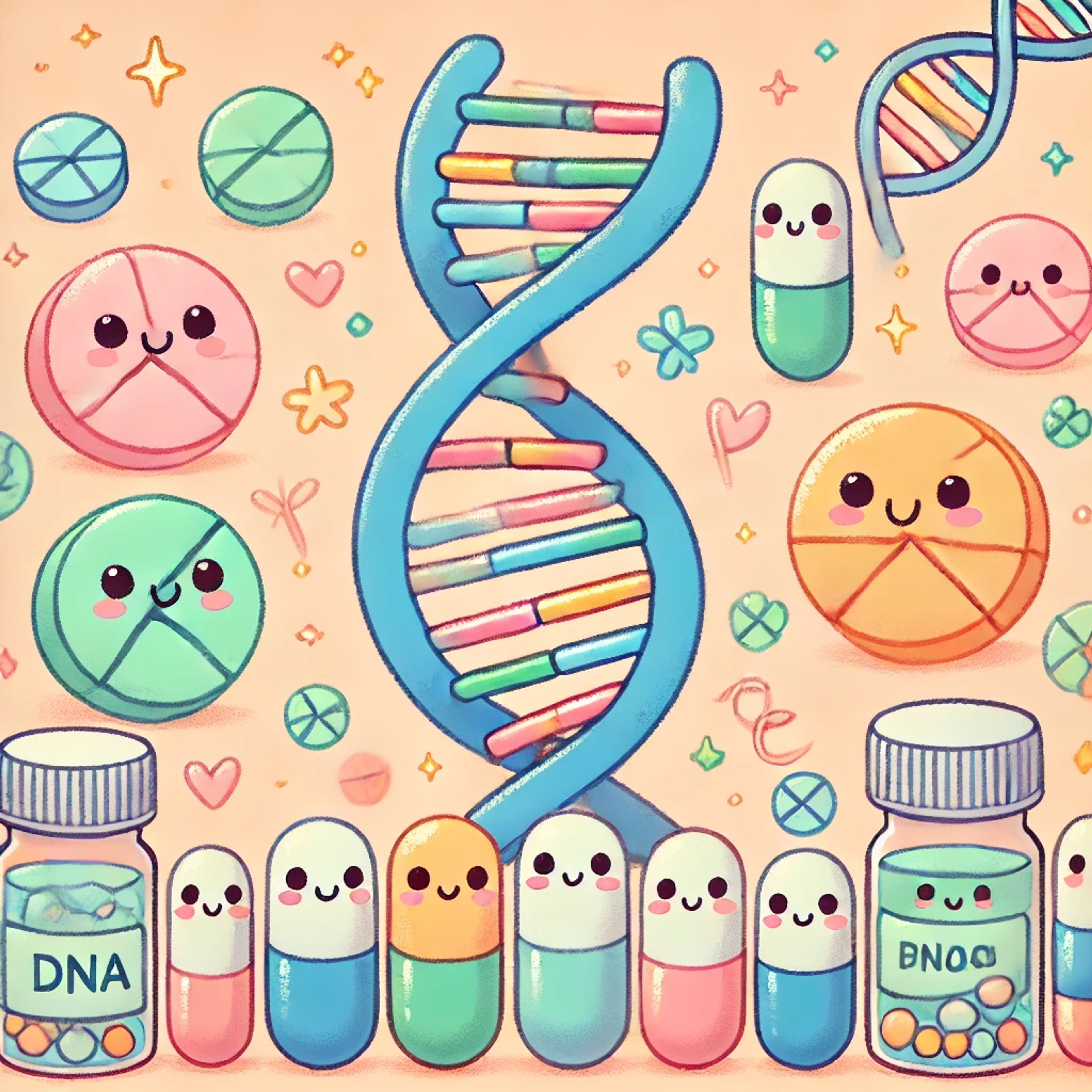10/31/2024
Understanding Pharmacogenomics: Personalized Medicine and Optimized Prescriptions for Physicians

Pharmacogenomics is revolutionizing the way we understand disease treatment, making it pivotal for modern medicine. It combines pharmacology, the science of drugs, with genomics to understand how people's genetic makeup affects their response to medications. At eNavvi, we believe that empowering physicians like you with knowledge about pharmacogenomics can significantly enhance personalized treatment strategies and ensure optimized prescription practices.
Pharmacogenomics is not just a theoretical science; it holds practical applications that can dramatically improve patient care. Through this blog, we aim to delve deep into the facets of pharmacogenomics, illustrating how it influences personalized medicine and optimized prescriptions, thus offering real value to your clinical practice.
The Basics of Pharmacogenomics
Pharmacogenomics explores the relationship between individual genetic variations and drug response. By understanding these genetic differences, healthcare providers can tailor medication choices and dosages to meet the specific needs of individual patients. There are three key gene types involved:
- Drug-Metabolizing Enzymes (DMEs): How your body processes drugs depends significantly on DMEs. Some people metabolize drugs very quickly, while others process them more slowly.
- Drug Transporters: These proteins help move drugs across cell membranes, influencing absorption and distribution in the body.
- Drug Targets: The genetic variations in drug targets can affect the efficacy of a medication.
Understanding these factors allows physicians to predict patient responses to particular drugs and adapt treatment plans accordingly.
How Pharmacogenomics Optimizes Prescriptions
Pharmacogenomics can transform prescribing routines in several ways:
Identifying the Right Drug: Genetic tests can reveal what medications will be most effective for a patient, reducing trial and error in finding the right treatment.
Determining the Right Dose: By understanding a patient’s metabolism, physicians can adjust drug dosages to what's clinically effective yet safely tolerated.
Avoiding Adverse Drug Reactions: Genetic insights can help predict serious side effects or adverse reactions, thereby safeguarding patient health.
Enhancing Drug Efficacy: Pharmacogenomics ensures that the medicines given are not only safe but also potent enough to combat specific illnesses effectively.
Such optimization fosters better patient outcomes and potentially reduces healthcare costs by enhancing treatment efficiency.
The Role of Pharmacogenomics in Personalized Medicine
Personalized medicine revolutionizes traditional approaches by tailoring medical treatment to the individual characteristics of each patient. By integrating pharmacogenomics, we can achieve a more precise approach to care that personalizes diagnosis, treatment, and management of diseases.
- Disease Diagnosis: Genetic information can uncover predispositions to certain conditions, aiding in early diagnosis and intervention.
- Tailored Therapies: Treatment plans can reflect a patient’s unique genetic makeup, allowing for more effective and targeted care.
- Predictive Insights: Beyond treatment, pharmacogenomics offers predictive insights into potential drug tolerance and effectiveness.
Implementing Pharmacogenomics in Clinical Practice
Incorporating pharmacogenomics into routine clinical practice doesn’t have to be daunting. Here’s how:
- Education and Training: Stay informed about the latest pharmacogenomic research and how it impacts clinical decision-making.
- Utilize Genomic Testing: Integrate genetic testing into your practice to uncover insights that inform prescribing.
- Leverage Technology: Utilize digital tools like eNavvi to access pharmacogenomic data and streamline the prescription process.
Adapting to this personalized approach ensures you remain at the forefront of modern medicine, offering your patients the best possible care.
Overcoming Barriers and Challenges
Despite its potential, pharmacogenomics faces several barriers:
- Cost and Accessibility: Genetic tests can be expensive and may not be accessible to all patients. Exploring insurance options or offering cash price alternatives, like those available through eNavvi's network, could alleviate this issue.
- Clinical Integration: Seamlessly integrating pharmacogenomic data into existing healthcare systems can be challenging but is necessary for effective optimization.
- Ethical Considerations: Handling sensitive genetic data requires careful consideration regarding privacy and ethical guidelines.
Case Studies: Success Stories
Oncology: Pharmacogenomics has allowed oncologists to tailor cancer treatments to individual genetic profiles, improving survival rates and reducing toxicities.
Cardiology: Genetic testing helps cardiologists predict responses to blood thinners, averting adverse events and enhancing patient safety.
The Future of Pharmacogenomics in Medicine
Looking ahead, the growth of pharmacogenomics promises more refined healthcare interventions:
- Real-time Genetic Profiling: Advances in technology may soon allow real-time genetic profiling in clinical settings, significantly improving care delivery.
- Expanded Drug Databases: With constant genetic data integration, the repertoire of optimized drug regimens will continue to expand, benefiting more patients.
At eNavvi, we’re excited to be part of this journey. Our platform champions transparency and empowers you to make informed prescribing decisions, while reducing drug costs. As pharmacogenomics continues to evolve, we promise to support you with innovative solutions, like our expanding pharmacy network and cash price marketplace.
For more resources and to learn how eNavvi can assist in integrating pharmacogenomics into your practice, visit our website. By staying ahead with these scientific advancements, together, we can craft a future of healthcare that’s as unique and dynamic as your patients.
